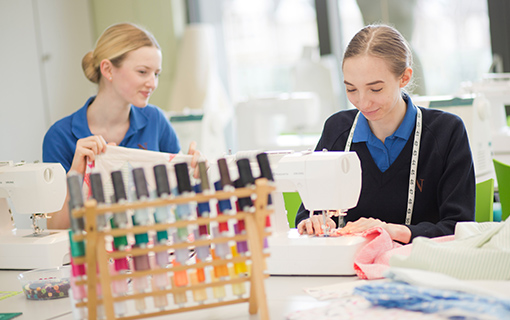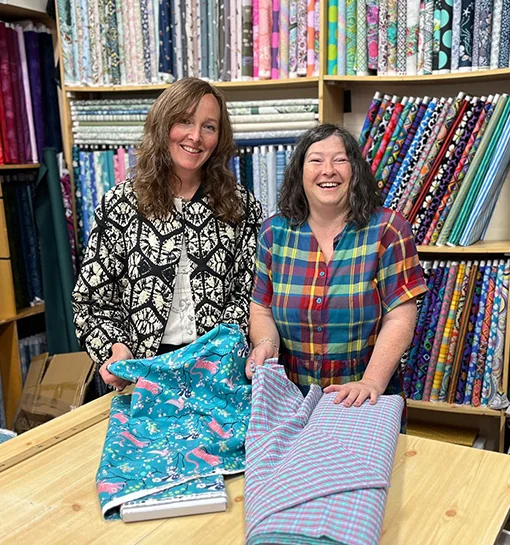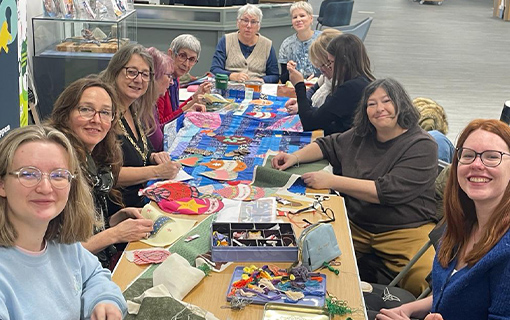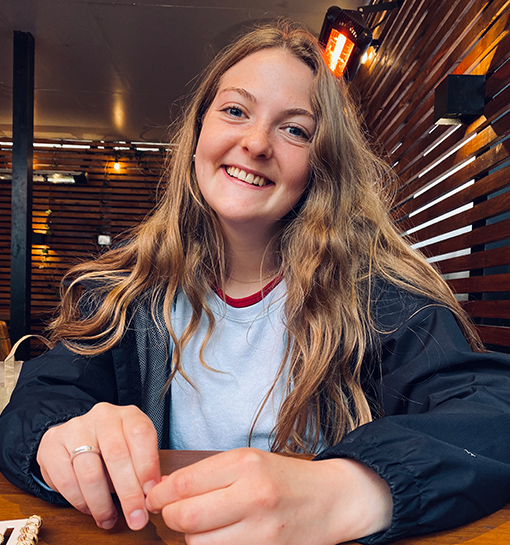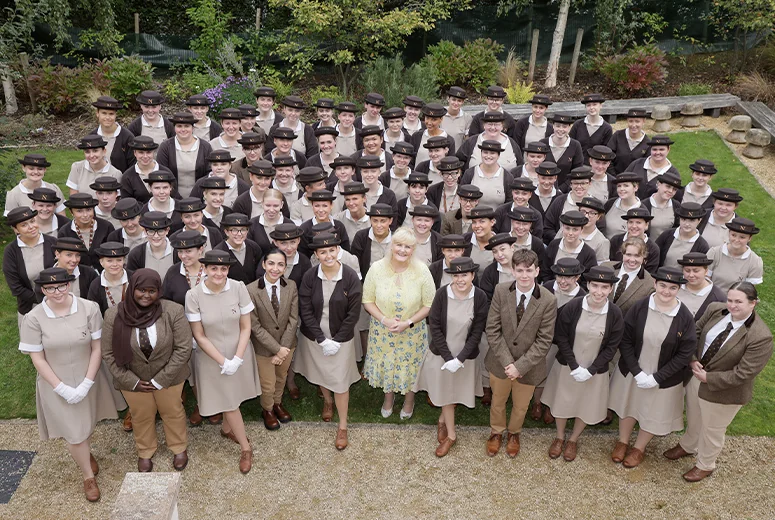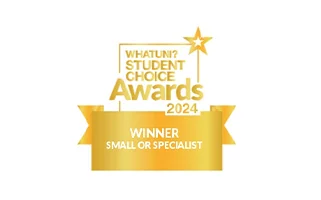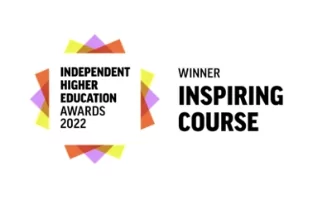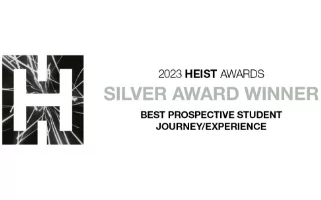Celebrating sustainability at Norland on Earth Day 2025
22 April 2025

Earth Day is an annual global event celebrating and raising awareness of the environmental movement and critical environmental issues. Earth Day 2025 will take place on Tuesday 22 April 2025, and is an opportunity to reflect on how we as individuals and as an organisation can support the environment.
At Norland, sustainability is at the forefront of what we do. Our commitment to creating a more sustainable world is woven through our existing course, as well as reflected in the new modules we offer. By embedding eco-friendly practices into our curriculum, we ensure that our students are well-equipped to incorporate these principles into their future careers as Norland Nannies, impacting not only the children they work with but the future world those children will grow up in.
Join us to learn more about sustainability at Norland as we celebrate Earth Day 2025 and continue our journey towards a greener, more sustainable future.
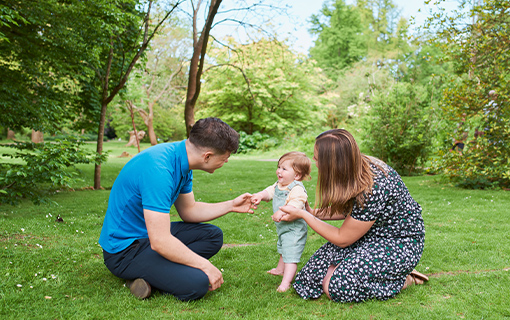
Sustainability in our training
As part of our BA Hons Early Childhood Education and Care degree programme, this year first-year students will be taking part in our sustainability module. This module links sustainability into nanny practice in a home-based context, investigating what sustainability means to our students as a nanny in a family, and highlighting how our students can bring sustainability to the forefront with their charges through fun activities and engaging resources.
Ideas for activities and resources that promote sustainability-focused play and engage children in environmental education for a sustainable future will be explored. Students will create informed, meaningful, manageable, and effective small scale project ideas to be carried out with children in the home, such as:
- Walking in, playing in, and investigating the environment in all weathers. Children are often naturally curious of the world around them and this module allows students to understand that this authentic curiosity and engagement is an essential basis for lifelong care of the environment.
- Sourcing food and other resources locally and sustainability. This might include growing food at home, home-based waste management, walking locally to the shops, and developing an understanding of where food comes from.
- Interacting with the community to engage in meaningful actions towards the United Nations Sustainable Development Goals.
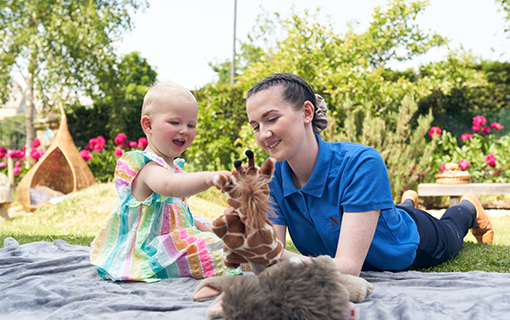
Food and Nutrition
Our Food and Nutrition curriculum incorporates sustainability principles, encouraging students to apply these principles in their cooking beyond their lessons. Initiatives such as providing recipes and methods for staff to use leftovers have significantly reduced food waste, promoting healthy cooking and eating, and inspiring students to come up with creative ways to utilise waste ingredients as a staff initiative.
Penny Bullion-Peters, Food and Nutrition Lecturer, said:
“The staff sustainability boxes came about from discussing what we could do with waste ingredients from student sessions after I had baked some items from waste products for the staff room on campus. The idea is to utilise leftover ingredients by creating boxes for staff to take home with a recipe or ideas of how the ingredients could come together. Staff dishes have closely followed what the students have been creating in lectures with some edits due to availability of produce and a ‘use-it-up‘ philosophy.
“Dishes we have created so far include:
- Gnocchi and kale pesto
- Spinach and ricotta ravioli in a tomato sauce
- Butternut squash and spinach curry with mixed lentil daal
- Saag paneer
“In terms of impact, there has been a noticeable difference in wasted ingredients. Students who have seen the boxes being prepared have also come up with ideas and utilised waste ingredients to create additional dishes for themselves. We have had a great positive reaction from staff who are keen to get involved. Where we haven’t been able to use food waste for staff or students, additional waste has also been utilised for feeding guinea pigs, chickens and horses of staff members.”
Image shows meal created by Norland staff using staff sustainability boxes.

Sewing at Norland and the Norland Green Team
Sustainable practices are also woven through Norland’s degree and diploma course through sewing. Sewing has remained a core part of the Norland training for over 133 years, but in a modern world where repair and upcycling are an important part of supporting sustainability in the garment industry, sewing takes on a new meaning for our students.
Norland sewing lecturers Kate Jaeger and Jo Price said:
“We are passionate about teaching and inspiring our students, helping them develop skills that will serve them throughout their lives.
“Sustainable practices are woven into the sewing programme as students learn machine and hand sewing techniques to create their designs as well as garment care skills such as mending, altering and repairing.
“Students are encouraged to recycle fabrics, using old bedding sheets and damaged or unwanted garments to make their pieces and some of our modules require the use of upcycled fabrics as part of the assessment criteria. In addition, students learn embellishment techniques including embroidery, printing, applique and patchwork, focusing on being resourceful and creative with materials to create quality items that will be enjoyed for generations.”
Read more about sustainability in the curriculum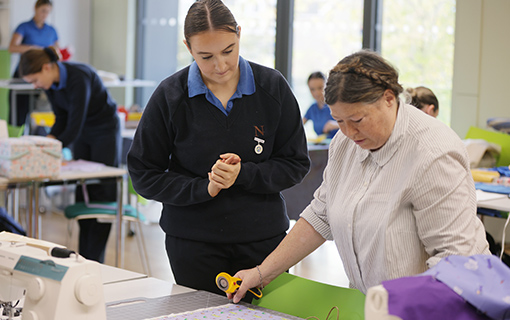
Sustainable Fashion Week
In September, Norland hosted the Sustainable Fashion Week 2024 Bath Hub. This community-led project emphasised sustainability in the garment industry, focusing on the ‘power of repair’. Norland’s participation included workshops for children and adults to share skills and creative ideas for mending and embellishing clothes, a clothes swap supported by a sustainable stylist, and a conversation on developing a conscious wardrobe.
Proceeds from the events supported sustainability-focused charities Fashion Revolution and Labour Behind the Label. Through getting involved in Sustainable Fashion Week, Norland aimed to inspire sustainable activities for families and children of all ages.
Alongside this, we recently welcomed Becky Barnes, Sustainability Stylist, to Norland for a session with students. She led an informative and inspiring talk about the impact fashion has on the environment and the steps we can take to make more environmentally friendly decisions when it comes to fashion.
Becky also spoke about the different ways students can think about the environment in their work with children, such as through skills learned on the Norland diploma in sewing and different ways they can treat children’s clothes.
First-year student Emely said:
“As common consumers we can take our own steps to reduce our eco footprint and Becky Barnes led us through this. Barnes challenged us students to take steps going forward to reduce our shopping habits and become more mindful consumers. I plan to tackle this head on and in the future by being aware of ways I can include this in my own practice with future projects and with children.”
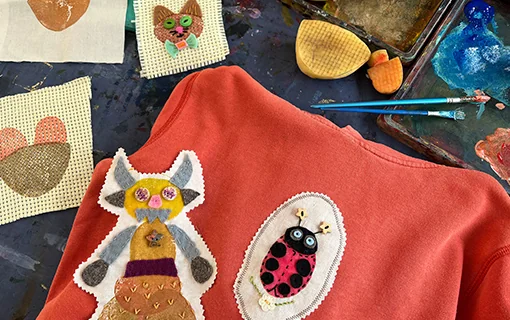
In addition to the ways in which sustainability is woven throughout Norland’s curriculum, and through activities such as the F&N staff boxes, Norland also focuses on green initiatives through its Green Team. Norland’s Green Team has set up further initiatives for staff such as:
- Taking part in the Bath and North East Somerset region travel survey which supports understanding of commuting, and sustainable travel options using public transport.
- The windowsill growing challenge to get staff involved in growing cress, microgreens, salad leaves and edible flowers. The idea of growing food items that are quick and easy to grow in small spaces, makes growing your own food realistic for everyone.
At Norland, we believe that teaching, demonstrating and engaging with sustainable practices is critical for the well-being of future generations. By integrating sustainability into our curriculum, we are not only preparing our students for their future roles but also fostering a culture of environmental responsibility that will have a lasting impact.
Find out more about Earth Day 2025